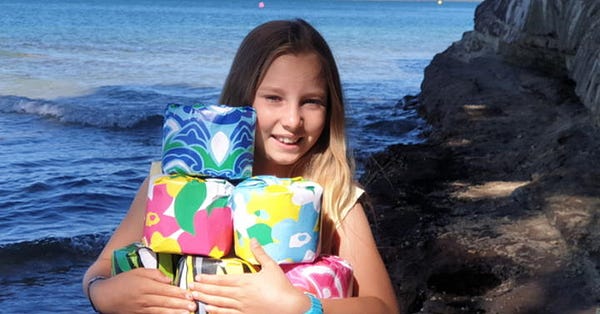I’m often asked by teachers something along the lines of
How do I find out what all the kids in my class are interested in? Because that takes a lot of time, which I don’t have!
It’s a valid question, and it holds true if we assume the only time an interest is evident is when a teacher asks for it to be made present.
But that’s not reasonable, is it. Often, if we try too hard to find out the kid hides it from us. They don’t want it ‘schoolified’. It’s too precious.
We all want kids who are driven and purposeful, don’t we, kids who are engaging with their world and doing something. It’s the ideal. This is the underlying agenda that drives all attempts at projects in schools.
And I’m sure we’d all be so proud if one of our students did what Lilah did. You can listen to her in this interview …
Why don’t more kids do this?
On some level, it’s unreasonable to think that all kids in school will show this degree of willingness to pursue something on the scale Lilah is here. But I don’t think that is also an excuse to see her as an exception, and think that everyone else just has to get with the programme and have a project squeezed out of them.
Listen carefully to what she says. Lots of it is to do with support. And, if we listen even more carefully, we can hear echoes of Rachel Botsman’s idea about trust: Lilah has a confident relationship with the unknown, because she knows what it is to be curious and care. She oozes a sense of trust.
What’s the value of granting space to interest?
I’ve always believed that one of the best things school can do is help a kid realise that they, their interests, and their strengths, have a place in the world.
It’s that connection with the world that cues all the good stuff: we think on our feet, participate and contribute, manage ourselves, balance our needs with those of others, and make use of the means and modes through which our culture and community expresses itself.
How many of these things are evident, or even possible, in a learning context that is highly scaffolded and controlled by the teacher?
Is there anything we can learn from how Lilah pursued her interest?
Here’s the process she tells us she went through
First, an Experience
Then she Noticed
Then she Wondered
Then she Researched
Then she Connected to passion
Then she Talked to people
Then she Started something
I reckon it’s not too bad a guide, and it worked because she had control of the idea and process, and support.
If we’re to get all English teachery about things and put a grammar lens on it, Lilah is the subject, not the object, of the verb.
Give this a try
Start with some experiences. Talk with the kids. Listen for what they reveal. Watch for what piques their interest.
Slow things down so the learning can speed up when it matters.






